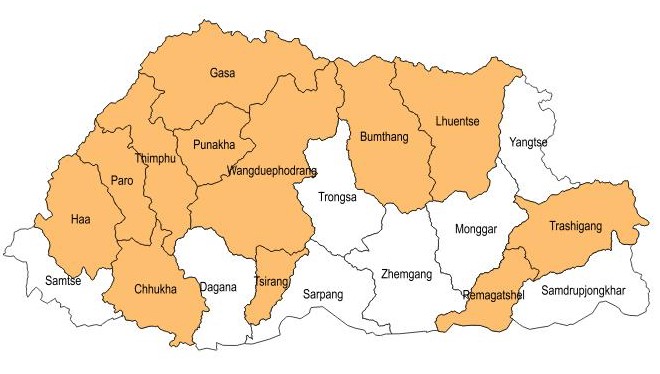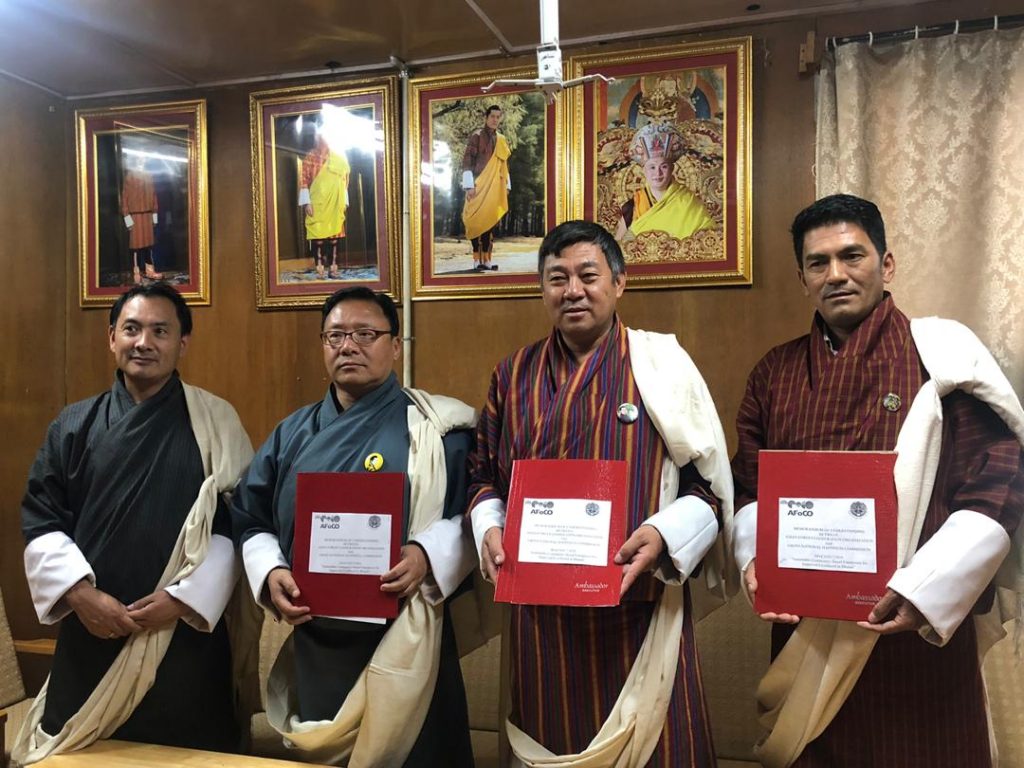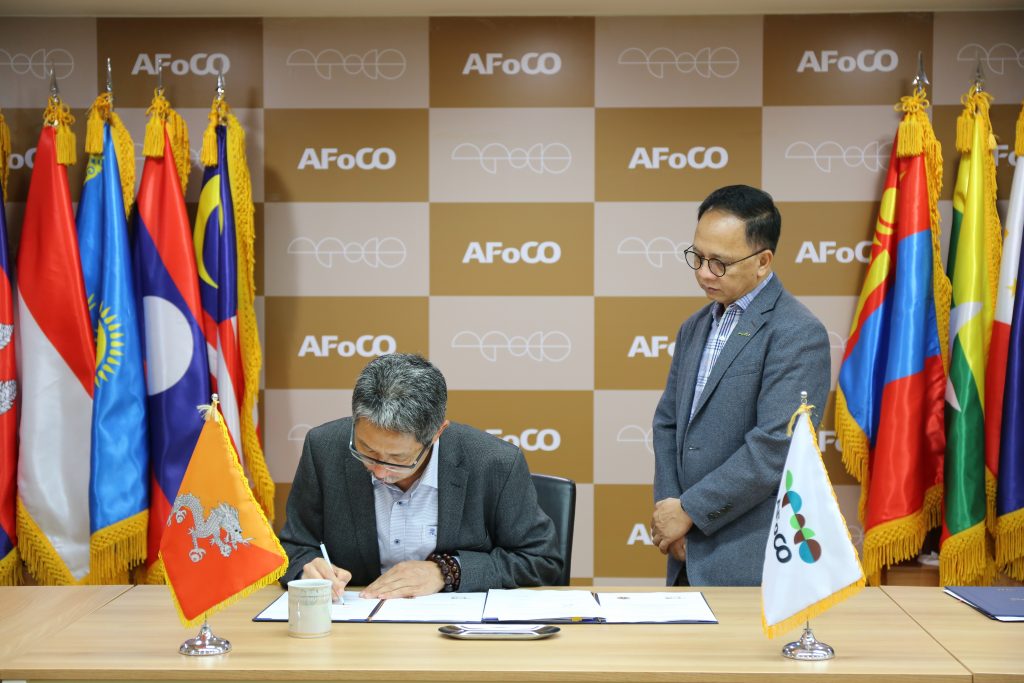On 1 July 2020, AFoCO launched its first project in Bhutan on “Sustainable Community-Based Enterprises for Improved Livelihood in Bhutan”.
The 5-year project will target 120 community forestry and non-timber forest management groups in 12 districts across the country. These districts were selected based on the potential for community-based enterprise development and the issues faced by community groups, including the lack of support from donor agencies in these districts. Community forests and non-timber forest product programs have received positive responses from the rural communities as these programs create livelihood opportunities for rural communities and promote participation in the sustainable management of forests and conservation of biodiversity.

The implementation of some of the main objectives of the Community-Based Forest Resource Management (CBFRM) groups through the project is directly aligned with the Royal Government of Bhutan’s priority of maintaining healthy ecosystems. The main purpose of the project is to strengthen the livelihoods of rural people through the establishment of small and medium-scale rural enterprises and marketing of forest products while encouraging them to manage forest resources sustainably. The capacities of key stakeholders in implementing the project in central and local governments as well as rural communities will also be enhanced.
Foreseen long-term impacts of the partnership include contributing to job creation and income generation for rural people through the development of CBFRM enterprises. With the project support, the Department of Forests and Park Services (DoFPS) will be able to establish sustainable management schemes of CBFRM, improve information sharing, and promote value addition. Furthermore, the project will also help improve the marketing of forest products and strengthen the capacities of stakeholders to empower rural communities to increase their income through CBFRM in a sustainable manner.
The project will also consolidate lessons learned in community-based forest management in Bhutan and capitalizing on the experiences gained over the past two decades of joint work undertaken with development partners in this field to aid the planning of future actions.
This mutual partnership will also contribute to achieving strategic outputs in AFoCO’s priority areas of restoration and reforestation and local livelihood improvement.


Contributed by Nguyen Duy Vuong, AFoCO Fellowship Official from Viet Nam

